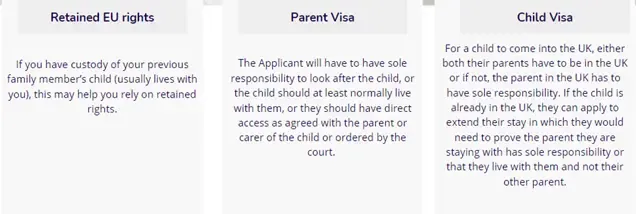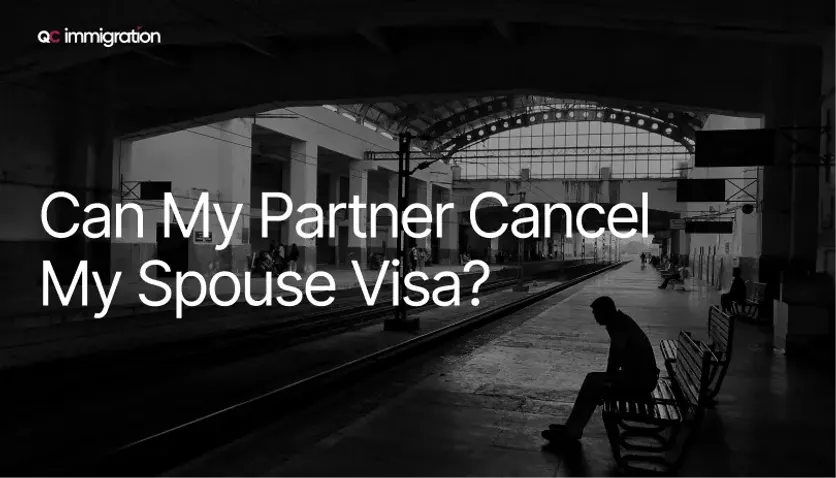Table of contents
What Happens to Your Visa When You Divorce or Separate


Share
We often work with clients that are looking to settle in the UK with their partners. From Spouse Visas for nationals married to a UK citizen wishing to remain in the UK with their partners to Civil Partner Visas or Partner Visas for those with family already settled in the UK.
However, what happens when individuals wish to remain in the UK without their partners after a separation or divorce? When going through a divorce or separation, many individuals wonder what will happen to their visa. Read on for information and advice on UK visas after a divorce or separation.
Family Visas after a divorce, separation, or dissolution
Earlier this year, QC Immigration presented a webinar to Family Lawyers, offering guidance on immigration options following divorce, separation, family dissolution and child arrangements. These solutions may also help individuals in planning ahead following a difficult, life-changing event.
These situations can be distressful for clients, creating anxiety whilst assuming they will be deported from the UK after the separation. This is often not the case.
At QC Immigration, we endeavour to get to know our clients well in these situations. Details like their background or contributions to the UK often guide us in advising the client whether they can keep their Visas or have the chance to switch to different visa routes.
When discussing alternatives, clients often discover that they are eventually eligible to apply for Indefinite Leave to Remain, or Settled Status.
Here are some key points to keep in mind:
- After a marriage/civil partnership/cohabitation is no longer subsisting, the Home Office should be notified as the basis of being granted the visa no longer exists.
- Once the Home Office finds out about the divorce, they may curtail the visa to 2 months.
- The applicant will need to find other visa options if they wish to remain in the UK after the divorce or separation.
Family Visas options after a divorce or separation
There are several routes that may be applicable to you if you are looking to stay in the UK after a divorce or separation. Some of these options may include:
- Spouse Visa or Civil Partner Visa
- Victim of Domestic Abuse
- Parent Visa

Explore your eligibility for the Spouse, Civil Partner, Unmarried Partner, Fiancé(e) Visa or Proposed Civil Partner Visa here.
Explore your eligibility for the Parent Visa on our dedicated page.
If none of the above options apply, you may consider other routes such as Work Visas.
Other visa options – Private Life
If a client cannot rely on the above family routes, we can look into options available to you through your independent UK history. One of these could be based on your own private life and long residence in the UK which ultimately builds upon your human rights, especially if you have lived in the UK for a long period of time and have contributed to the economy.
The criteria would be if the client has been living in the UK and one of the following applies:
- You are under 18 and you’ve lived in the UK continuously for at least 7 years, and it would be unreasonable to expect you to leave the UK.
- You are aged between 18 and 24 and you’ve lived continuously in the UK for more than half your life.
- You are aged 18 or over, have spent less than 20 years in the UK and would have very significant problems living in the country you’d have to go to - for example, you do not speak the language and could not learn it.
- You are aged 25 or over and you’ve been in the UK continuously for 20 years.
Apply to Pre-Settled Status after a Divorce or Separation
When clients have European connections, you may explore the EU Settlement Scheme. Applying to Pre-Settled Status is frequently a possibility.
The criteria to consider would be:
- Being married to an EU national.
- Be present in the UK at the time of divorce.
- Can rely on retained rights provided one of the following applies:
- The marriage or civil partnership lasted for at least 3 years, and you had both been living in the UK for at least one year during that time.
- You have custody of your previous family member’s child, meaning that the child normally lives with you or does so part of the time, and includes arrangements agreed informally and those which are subject to a court order.
- You have been given the right of access in the UK to your previous family member’s child and the child is under 18.
- You or another family member have experienced particularly difficult circumstances - for example, as the victim of domestic violence or abuse in the marriage or civil partnership.
Child Living Arrangements & Visas
When there are children involved, clients may have the right to choose among other possibilities such as retained EU rights, Parent Visa or Child Visa.

- Sole Responsibility – child custody is not sole responsibility but can be a factor to help prove sole responsibility.
- Direct Access - can be evidenced by a child arrangement order (formerly residence order or contact order) granted by a court in the UK. Therefore, child custody can prove you have direct access to the child.
As we are increasingly dealing with families of multiple nationalities, relationship breakdown and immigration status issues are often tied together. It is important to work on a strategy with an immigration expert: considering the best options for each client is key to enable a smooth transition from one Visa to another to maximise the chances of remaining in the UK. If this is something you would like to discuss please get in touch today.



